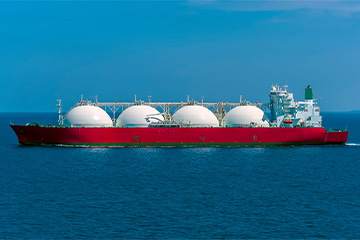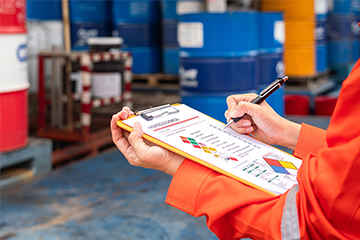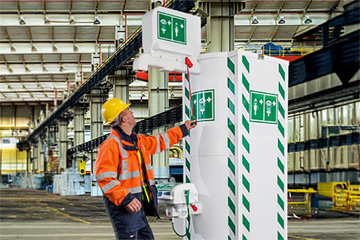Enquiry List () (0)
- Sep 29, 2022
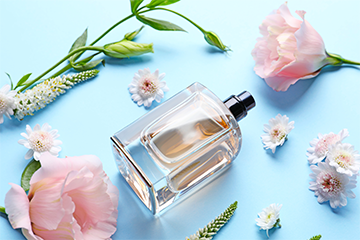
Supplying A Spritz of Safety to Fragrance Production
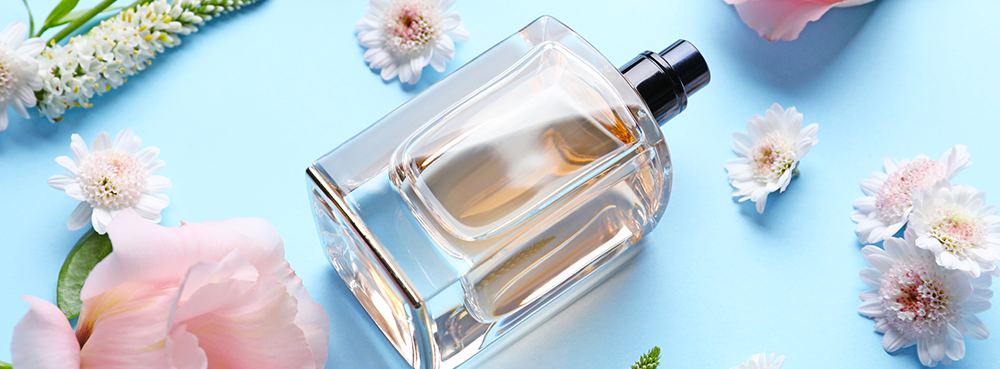
The perfume industry continues to see significant growth, valued at $33 billion as of 2021. In the same year, the USA generated $7.97 billion of revenue, with an expectation of 3.08% annual growth between 2021 and 2025. The manufacturing process for cologne and perfumes involves the delicate extraction and mixing of several compounds, some of which have high concentrations that can cause harm to workers if mishandled. Therefore, providing workers with the appropriate safety equipment in the event of an emergency is vital to prevent lasting harm.
The perfume making process sees oils extracted from various sources to produce fragrances. Most of these essential oils can be extracted from natural sources such as flowers but due to refinement over the years, and tighter regulations, ingredients such as musk and ambergris can now be produced synthetically. One of the greatest risks posed by perfume manufacturing is the high levels of alcohol, or denatured alcohol, that the essential oils are then mixed with. Perfumes are generally dissolved in 60% to 80% of alcohol or alcohol denat, while colognes are dissolved into an even higher 80% to 90%. Denatured alcohol is alcohol with an added denaturant to discourage consumption. However, the process of denaturing the alcohol also causes the substance to become toxic. When contacting the skin, alcohol denat can cause dryness, redness, and itching, often associated with dermatitis. Prolonged exposure to the compound can also result in permanent disruption to the skin’s natural barrier and oil production, resulting in painful complications.
In the event of a chemical spill, workers can treat an affected body part using a Hughes unheated indoor shower which exceeds the recommended 15 minutes of water that must be provided to meet EN and ANSI standards. For sites that struggle to maintain a tepid water range, the STD-TC-100KS/45G unit has a 300L integral heated water tank to maintain a water temperature between 20-25C.
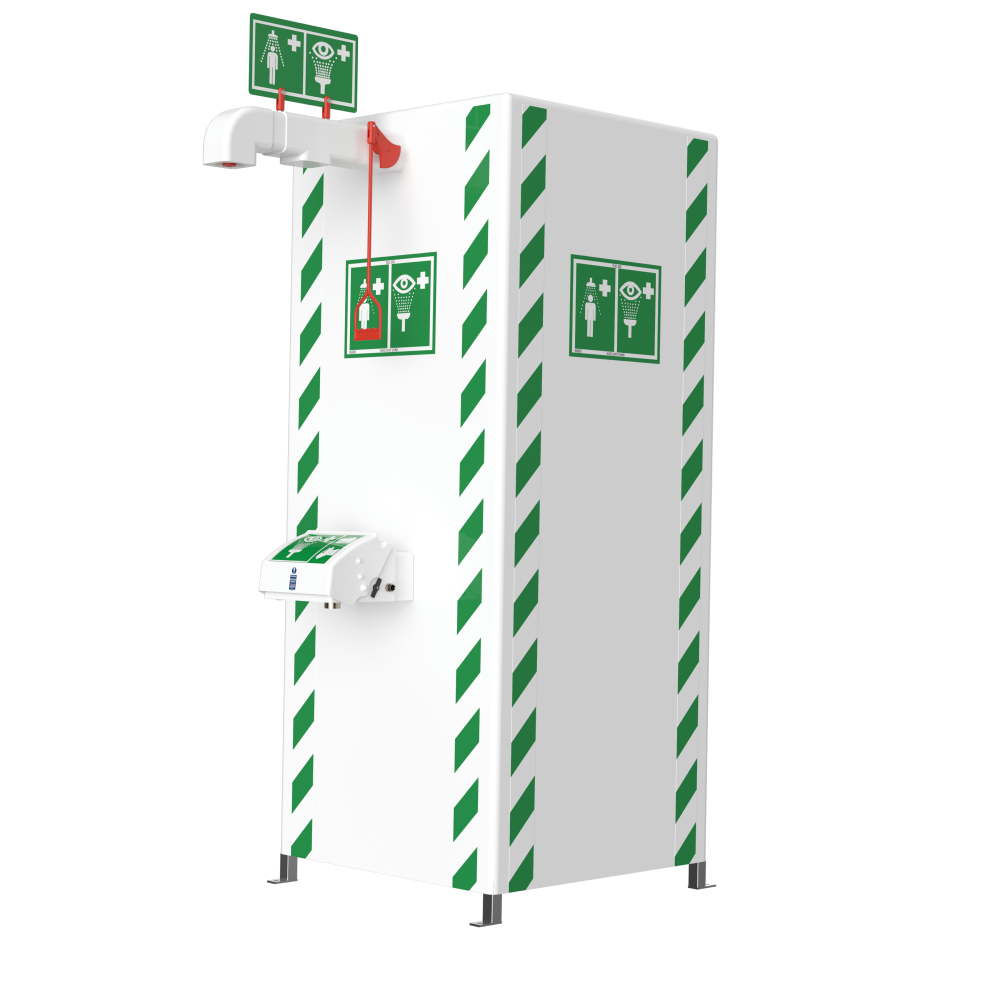
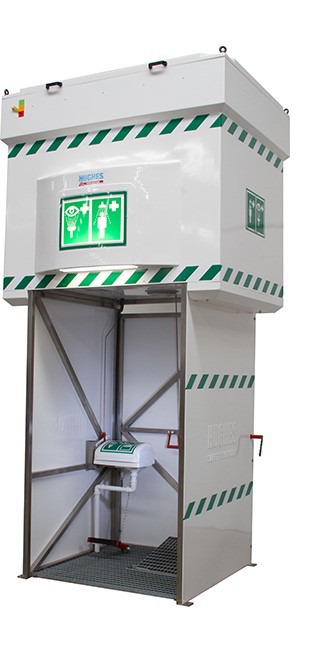 It is not just the production process that presents dangers to workers, as transporting the finished product is also a particularly delicate procedure. In the event of a spill, ingestion or excess amounts of perfume contacting the skin can lead to perfume poisoning. Perfume poisoning can cause an affected person to suffer symptoms such as confusion and dizziness, followed by vomiting and slurred speech. To mitigate this risk, tank showers positioned at the site of loading can allow a casualty to immediately flush the site and minimise the amount of perfume absorbed by the skin. The tank-fed system also means that a constant water supply is not required for the unit to operate and can therefore add more versatility to positioning.
It is not just the production process that presents dangers to workers, as transporting the finished product is also a particularly delicate procedure. In the event of a spill, ingestion or excess amounts of perfume contacting the skin can lead to perfume poisoning. Perfume poisoning can cause an affected person to suffer symptoms such as confusion and dizziness, followed by vomiting and slurred speech. To mitigate this risk, tank showers positioned at the site of loading can allow a casualty to immediately flush the site and minimise the amount of perfume absorbed by the skin. The tank-fed system also means that a constant water supply is not required for the unit to operate and can therefore add more versatility to positioning.
To discuss the requirements of your site and find the appropriate solution for your workers, contact Hughes today.






